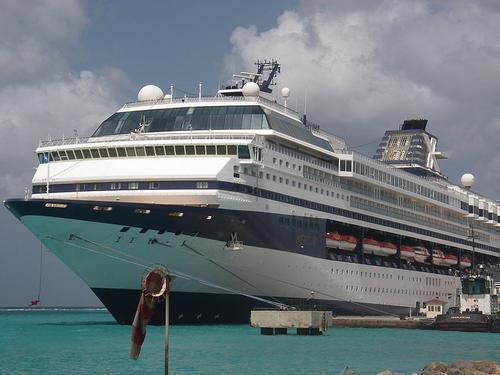ARUBA
Economy

Economy

Cities in ARUBA
| Oranjestad |
Economy
Aruba is an important cruise destinationPhoto: Satori Son at English Wikipedia CC3.0 Unported no changes made
Until the arrival of the Lago refinery, the Aruban economy was not doing well. Before that, the economy depended on a few meager livelihoods and the population was living below the subsistence level. Agriculture and animal husbandry also had little significance and the extraction of natural minerals such as gold and phosphate has never really been a rich source of income. With the advent of the "black gold" much changed in Aruba. All other livelihoods were subordinated or neglected. Automation of the refining process eventually resulted in the Lago refinery closing its gates permanently in 1986. In the late 1950s and early 1960s, an entirely new livelihood was emerging: tourism. This grew into a second important source of income. After the closure of the oil refinery, tourism suddenly became the main source of income. Hotels were set up at a rapid pace. As a result, Aruba does have a one-sided economy that is very fragile and highly dependent on the United States, where most tourists come from. In 1990 the closed refinery was put back into operation on a small scale by the American oil group Coastal. Despite the one-sided economy and large government deficit, the average Aruban income is the highest in the entire Caribbean. Other economic activities in Aruba are offshore banking (banks with a lot of foreign capital that settle here because of the favorable financial climate). Aruba's main trading partners are Venezuela, the United States and of course the Netherlands.
Sources
Bant, W. / Nederlandse Antillen
ANWB
Encyclopedie van de Nederlandse Antillen
De Walburg Pers
Helm, R. v.d. / Reishandboek Aruba
Elmar
Paula, M. / Nederlandse Antillen & Aruba
Van Reemst
CIA - World Factbook
BBC - Country Profiles
Copyright: Team The World of Info
